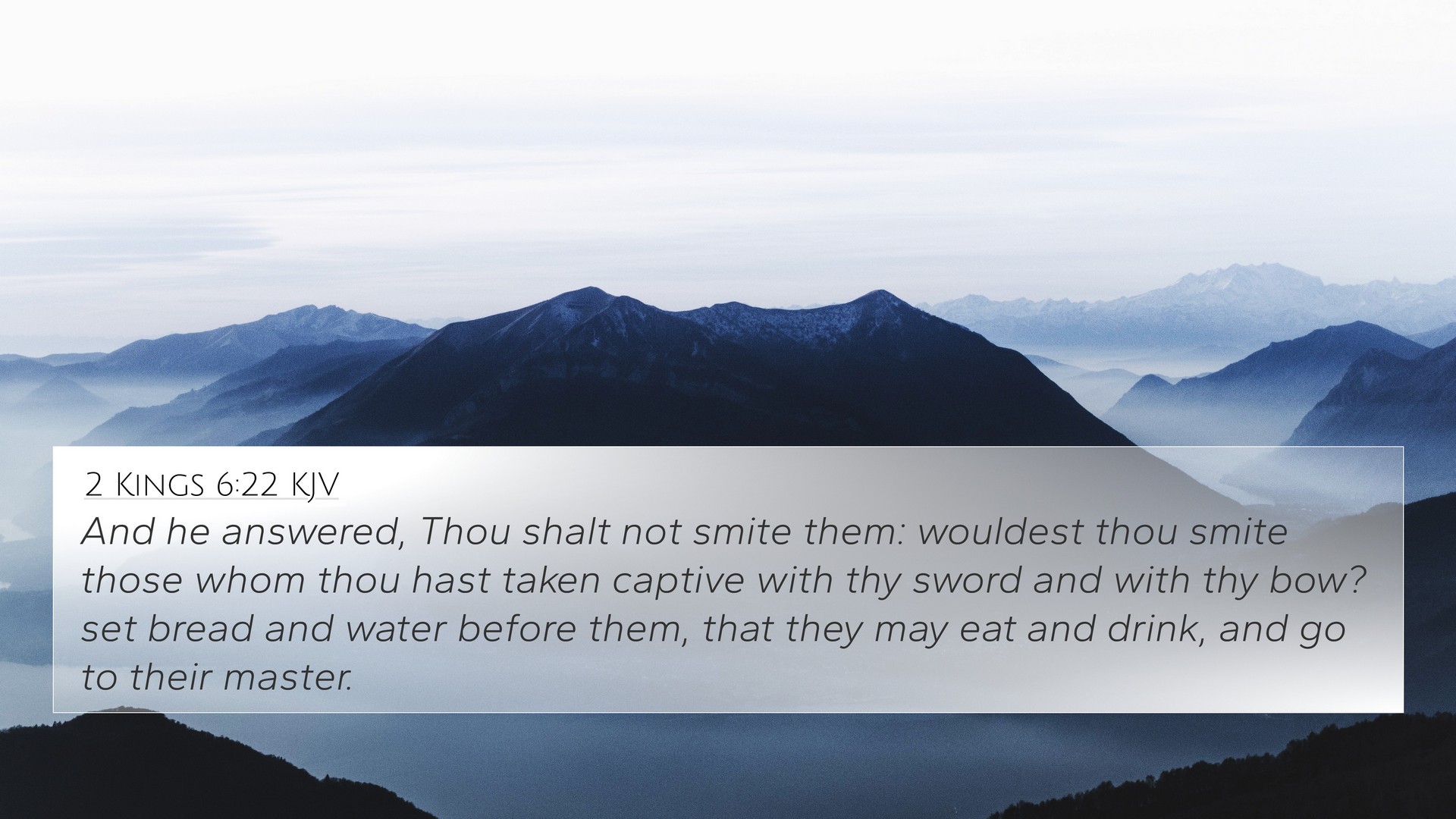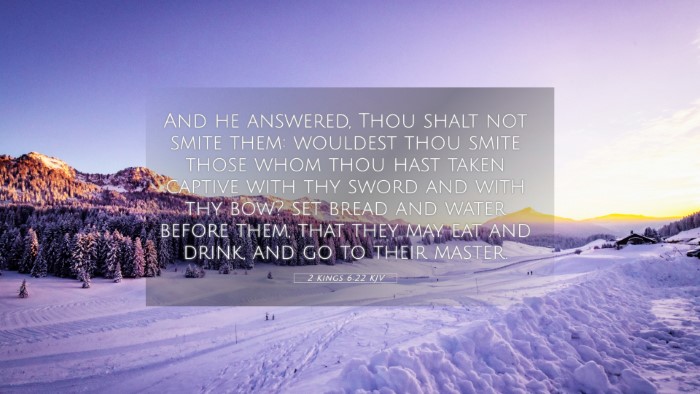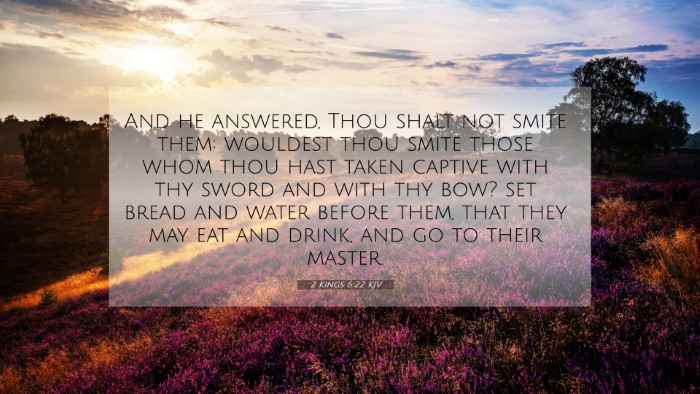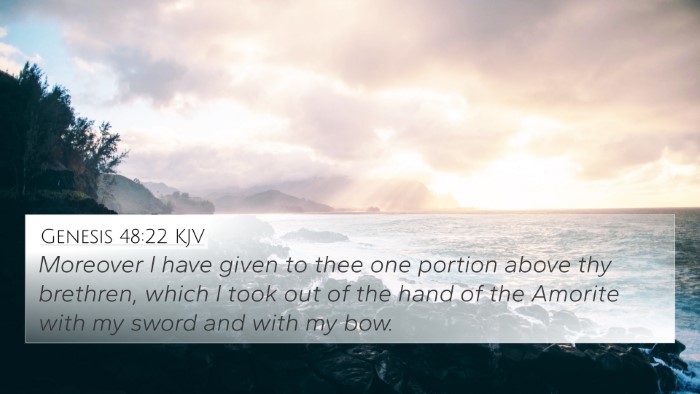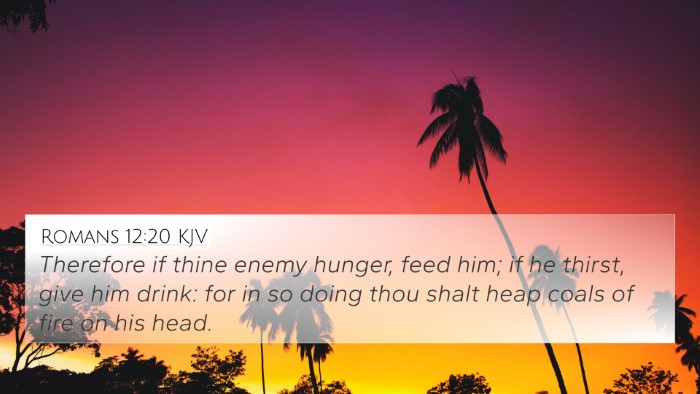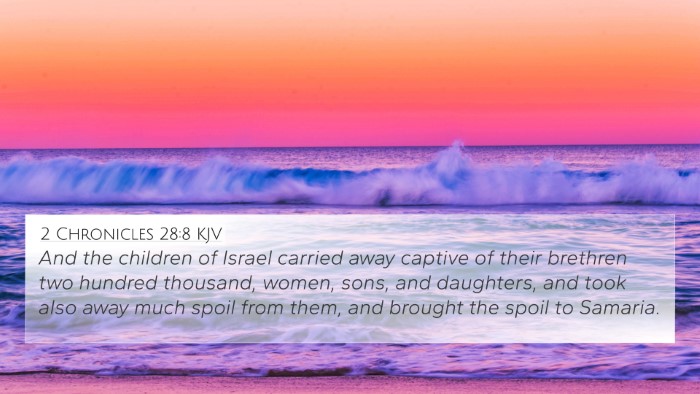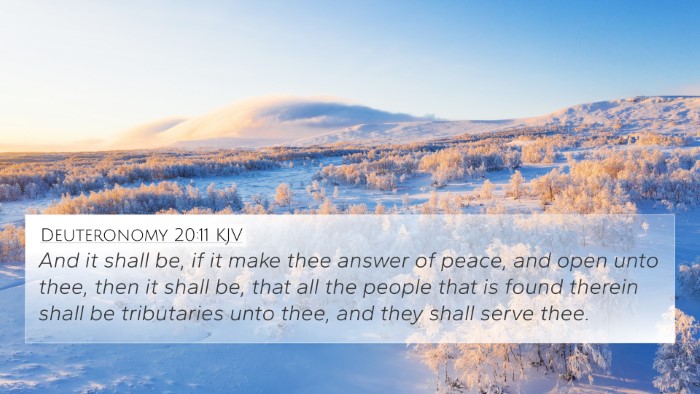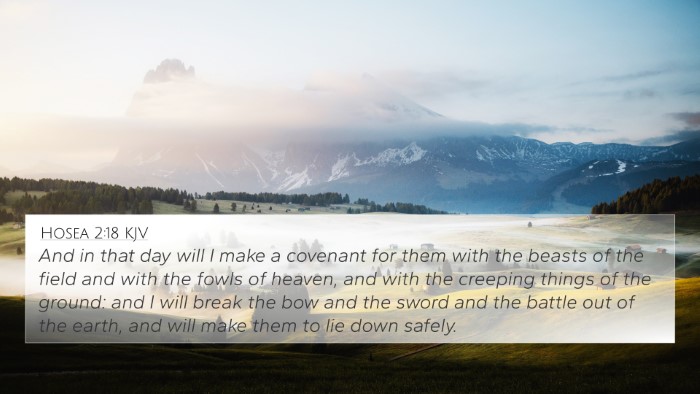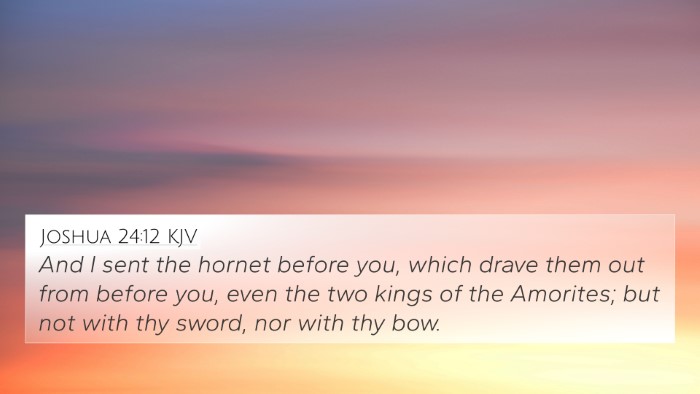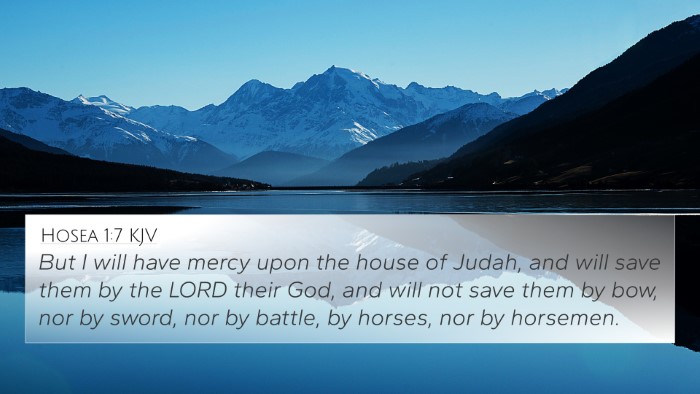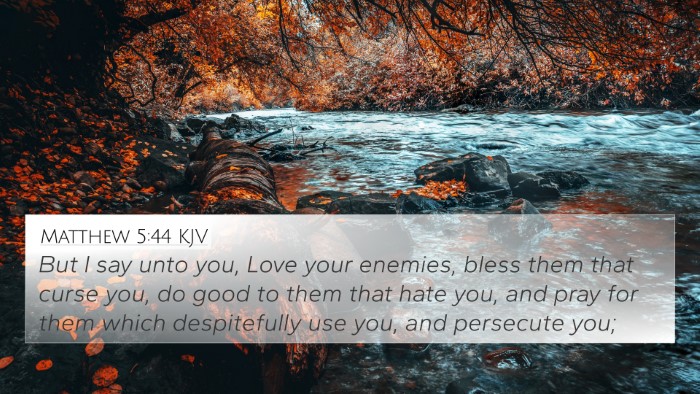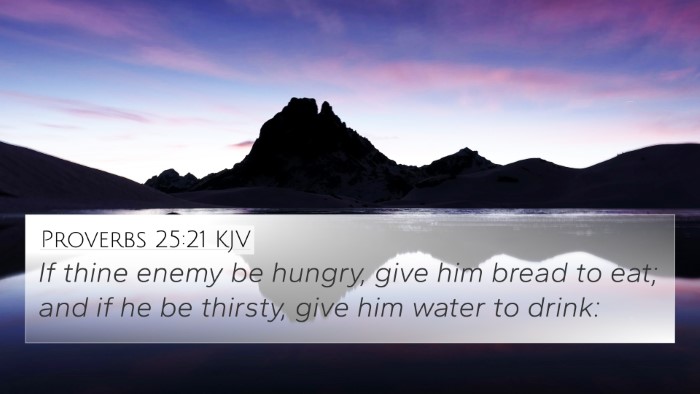Understanding 2 Kings 6:22
This verse is a profound narrative that elucidates themes of mercy, divine intervention, and the complexities of human conflict. In 2 Kings 6:22, the prophet Elisha responds to the king of Israel regarding the captured enemies, presenting a lesson in mercy and grace. The verse states:
"And he answered, Thou shalt not smite them: wouldest thou smite those whom thou hast taken captive with thy sword and with thy bow? set bread and water before them, that they may eat and drink, and go to their master."
Summary of Insights
The insight provided by various public domain commentaries indicates multiple layers of meaning within this verse.
- Message of Mercy: Both Matthew Henry and Adam Clarke emphasize that Elisha advocates for mercy rather than vengeance. This underscores a biblical principle of treating captives with kindness.
- Divine Guidance: Albert Barnes notes that Elisha, as a prophet, exemplifies the guidance of God in handling conflict, urging the king to act with compassion instead of hostility.
- Symbolism of Bread and Water: The provision of bread and water stands as a representation of sustenance and peace, indicating a way forward rather than a continuation of enmity.
- Foreshadowing Christ's Teachings: Many scholars connect this verse to the New Testament teachings of Christ, especially regarding love for enemies (Matthew 5:44), illustrating a consistent biblical theme.
- Influence on Old Testament Warfare Ethics: The verse adds to the dialogue about warfare ethics in the Old Testament, suggesting that there is a place for humanity even amid battle.
Cross-References
This verse connects with various other biblical texts that enhance its meaning. Here are some significant cross-references:
- Matthew 5:44: "But I say unto you, Love your enemies, bless them that curse you, do good to them that hate you, and pray for them which despitefully use you, and persecute you."
- Romans 12:20: "Therefore if thine enemy hunger, feed him; if he thirst, give him drink: for in so doing thou shalt heap coals of fire on his head."
- Proverbs 25:21: "If your enemy is hungry, give him bread to eat; and if he is thirsty, give him water to drink."
- Luke 6:27-28: "But I say unto you which hear, Love your enemies, do good to them which hate you, bless them that curse you, and pray for them which despitefully use you."
- 1 Peter 3:9: "Not rendering evil for evil, or railing for railing: but contrariwise blessing; knowing that ye are thereunto called, that ye should inherit a blessing."
- 2 Timothy 2:24: "And the servant of the Lord must not strive; but be gentle unto all men, apt to teach, patient."
- 2 Chronicles 28:15: This passage illustrates acts of mercy in a similar context, revealing the understanding of compassion in captivity.
Thematic Connections
There are significant thematic connections between 2 Kings 6:22 and other scriptural texts:
- Mercy as a Divine Principle: The message of mercy presented in 2 Kings lays a foundation for understanding God's character, which is consistently highlighted throughout the scriptures.
- Human Relationships amid Conflict: This verse invites a deeper contemplation of how we handle our relationships, especially in conflicts, urging a paradigm shift toward kindness.
- Role of the Prophet as Mediator: Elisha serves as a mediator between these captured enemies and Israel, much like Christ mediates between humanity and God.
Tools for Cross-Referencing
For enhanced study, utilize tools for Bible cross-referencing to delve into related verses:
- Utilize a Bible concordance to identify keywords like "mercy," "enemy," and "captivity."
- Employ a Bible cross-reference guide which links similar themes across the Bible.
- Use software or online platforms that offer a comprehensive Bible cross-reference system for efficient cross-referencing.
Applying the Insights
When studying this verse, reflect on how it applies to contemporary issues. The call to mercy and compassion remains relevant in personal interactions and broader societal conflicts. These principles resonate across both the Old and New Testament, providing a valuable guiding framework for life's challenges.
Conclusion
The essence of 2 Kings 6:22 is a profound reminder of the power of mercy over vengeance and the moral imperative to treat others with kindness, even adversaries. By engaging in comparative Bible verse analysis and recognizing the connections between scriptures, believers can enrich their understanding of biblical teachings on mercy and divine intervention.
